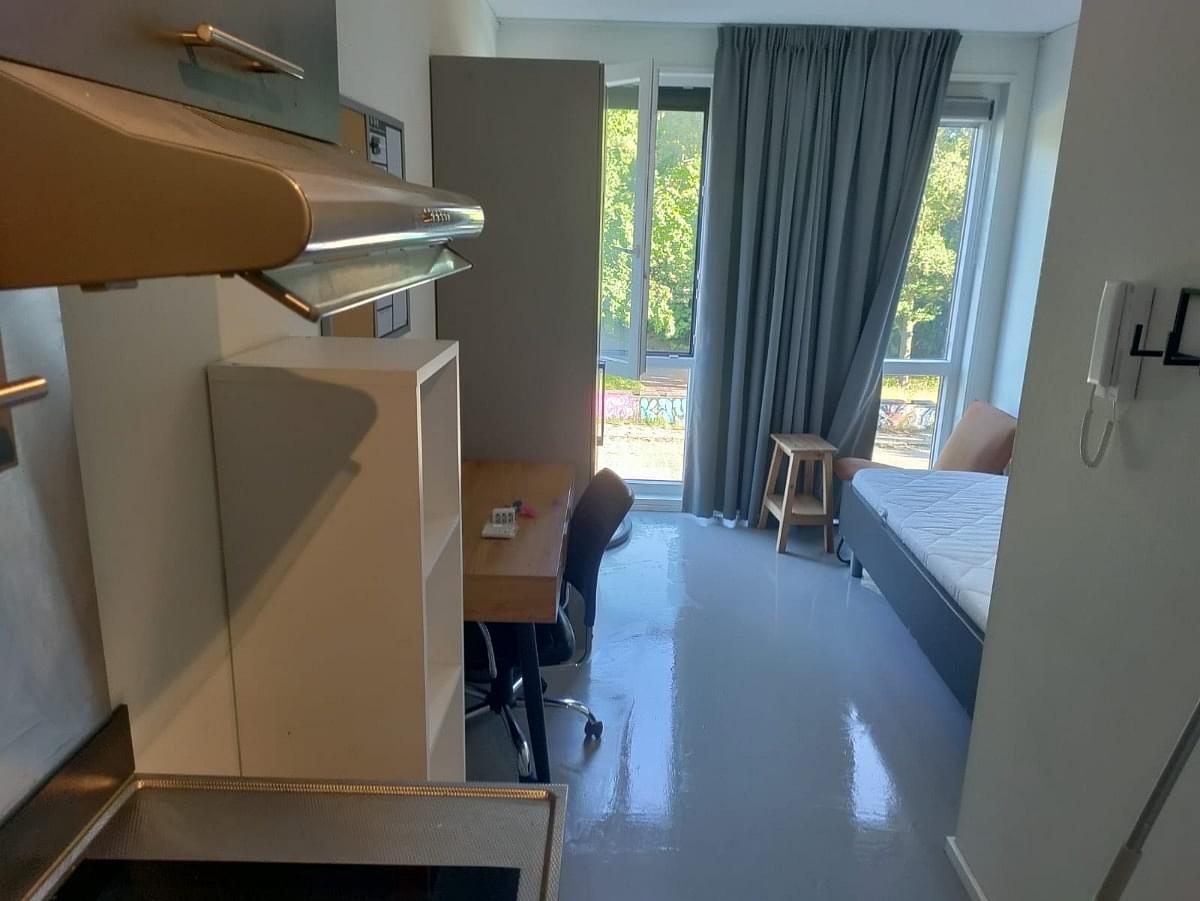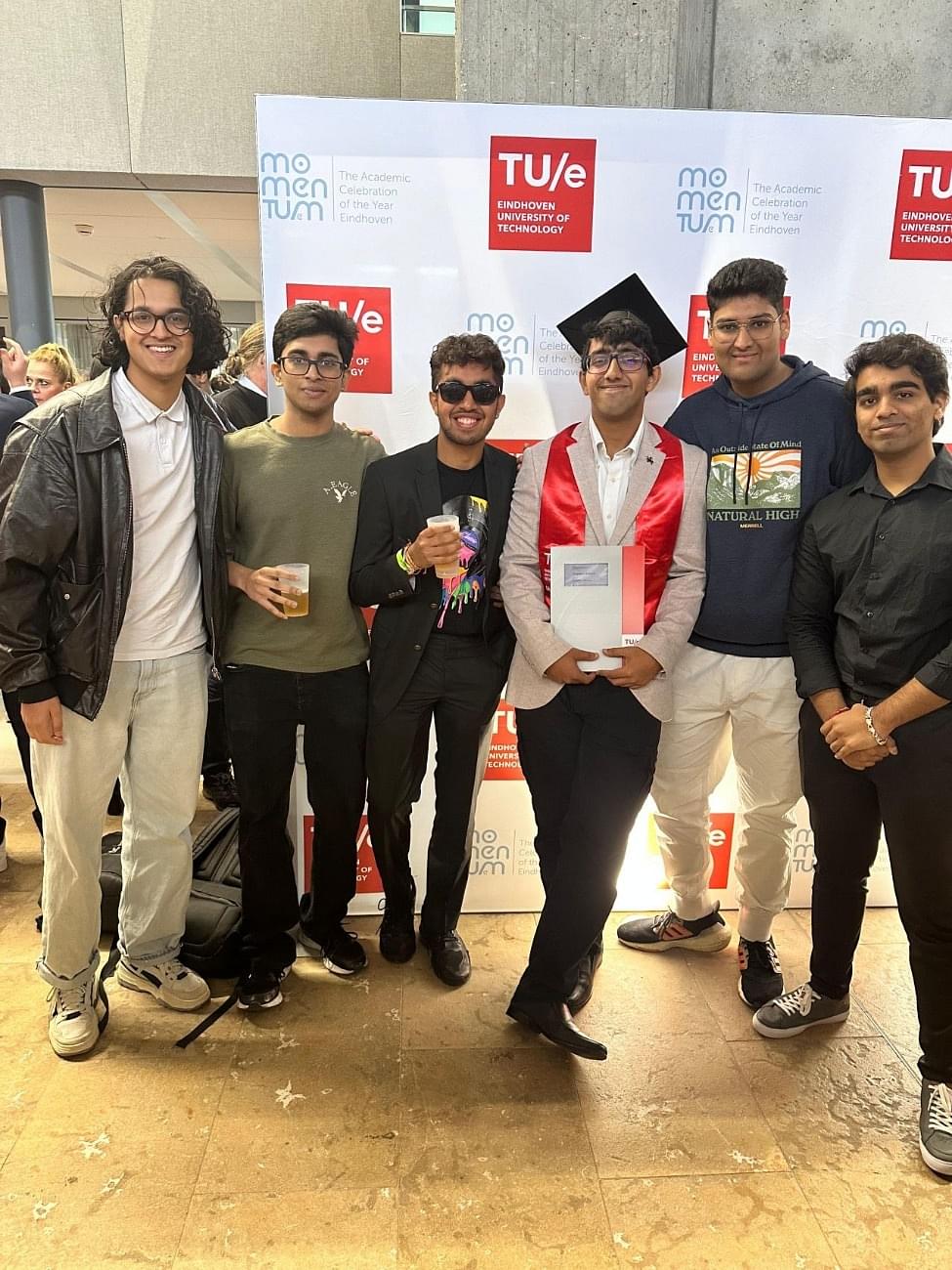What Students Say
Likes
- Great international environment and diversity
- Well educated faculty from several countries
- World-class facilities when it came to machinery and equipment
Dislikes
- Complicated administrative processes
- Lack of flexibility and leniency
- No affordable cafetaria and restaurant available on campus, also closest grocery store was quite far to go in between during classes
Course Curriculum
- The difficulty in Electrical Engineering is quite high. For reference, our graduation rate within 3 years is a mere 12%. After a fourth year that rate goes up from 12 to 35%, which is still quite low. It is a good course that offers both theoretical and practical knowledge, as well as a lot of freedom to choose your electives.
- The negative aspects are definitely the rigorous examination requirements to pass each course. You can never get less than a 5/10 on an exam and every course must overall be at least a 5.5/10. The positive aspect is that project courses are taught quite well and teach students skills that they are otherwise uneducated about.
- A maximum of 2, 4-hour lectures/blocks a day. Approximately 3.5-4 full days of education
- Number of students enrolled in my programme was 300 per year.
- In my year there were only a handful of students in EE (there were obviously others in different courses), but that has risen quite a bit this year with over 20-30 joining.
Admission Experience
- I applied to this college, TU Delft (Rejected), and the University of Turin (Admitted). I was not rejected immediately for TU Delft but I was waitlisted first. The application process for them starts with 3 different kinds of tests, all either related to Physics, Math (I applied for Aerospace Engineering) or logical reasoning. In the end was a final motivation survey, which was the reason I was rejected since my answers strayed quite far from the modal answers.
- The number one factor for me choosing this university was affordability, at under 35k euros for the entire Bachelor's tuition. Moreover, back then the inflation in the EU was not so high so it was overall quite affordable (Now we have budget cuts in the Netherlands so tuition costs are rising).
- The steps in my application process were quite general: Letters of Recommendation from academic faculty, IELTS test scores (at least 6.5; I received 8.5), CBSE XII grades (at least A1 in all; I received 98.4%), a study choice check interview to determine if you truly fit the programme you applied for, and a transcript of records.
- The overall admission experience was quite smooth; a lot of it is generalised on Studielink, which you may check out so it was quite easy to follow being the first one in my family to come here.
- I applied to the regular intake (September 2021), since for Bachelor's there is only one. The factors influencing my decision were costs, quality of program, potential job opportunities upon successful completion, etc.
- The admission process did not take long at all when I compare it to companies like Singapore, who still hadn't given me an acceptance by August. I would say less than 3 months was the entire process. The timeline would be something like
- Find your program
- Apply on Studielink
- For CS, etc., there is a numerus fixus so you may have to give tests. For Data Science there are some additional complications due to it being offered as a Joint Bachelor's between TU/e and Tilburg University.
- Give a basic logical reasoning/capability/aptitude test
- Get approved/waitlisted
- Have your study choice check interview
- Accept/Reject position if offered
Faculty
- The faculty-student ratio is 35.7. To me it never felt like this was low since we had ample resources provided by educated teachers and professors. The quality of the education was high even though interaction may not always have been super high.
- The teaching methodology is something that varies too much course to course for me to generalise, but I believe if you plan your electives well, there are definitely good skills you can pick up for securing a job
- Faculty members usually don't help assist students with finding jobs; there could be some exceptions.
- The faculty members I admire the most are not snobby or bratty about their accomplishments and treat their duties as teachers of a young generation well. All of them are academic scholars and some of them just have too high expectations.
Campus Life
- My college has only one campus in the ring of Eindhoven.
- My college has a library, sports facilities, cafes, pubs, medical services, security services, lakes, nature areas, etc.
- The most important campus festivals are the "intro-week," which is the orientation week for all Bachelor's students. There is also MomenTu/m, which is where all graduates from last year party, as well as Hajraa, which is the biggest party on campus organized by the volleyball teams.
Part Time Jobs
- Several students secure TA positions; I myself was a TA for several courses I performed well in. Pay range differs depending on how many credits you have but is always above minimum wage and does pay quite nicely for the amount of work it takes. Other on-campus jobs for students include bartending, making sandwiches, etc with lower, if any, wages. Max hours allowed per week are 16. Difficulty is not high; you just need an 8 in a course to be a TA for it.
- Students find part-time jobs quite easily. The university has a partnership with a third-party company called Euflex, which provides working permits for students. The usual process is just submitting a CV with experiences mentioned and as long as their is interest in a role as well as some kind of experience attached to it, one should receive it no problem
Placement
- Most students who complete their Bachelor's enrol in a Master's directly so the number is unknown to me. Average salary range, I would suspect, is 3-3.5k euros per month upon graduation. Students have to apply for jobs themselves and it can be quite difficult if they don't speak Dutch, have no internships or any professional work experience, etc.
- Online job portals work best. There are no placements here. The biggest companies in the area are ASML, Shell, Philips, Siemens, Rabobank, ABN AMRO, KPMG, Deloitte, etc.
Accommodation
- I found my accommodation through university support, apart from which it was extremely stressful. The monthly rent at that time was about 450-650 euros per month per head and this included gas, water, electricity, etc. There are several challenges that one faces when their contract expires, even if they are still studying (uni sometimes only offers 2-year contracts) and then it's a real struggle for internationals.
- My best recommendation would be to only come to the country if you already find an accommodationotherwise you will be literally homeless and that is not a good situation to start your university life in
- Accommodations are usually on or within a 1.5km radius of campus; most indian students obtain these accommodations or have to live quite far (from 3 to 10 km) in housing offered by third-party companies.
Exams
- Exams required were either IELTS or TOEFL (IELTS minimum 6.5 with no lower than a 6 in all categories), CBSE grades (All A1), multiple LORs, a basic CV, and a basic SOP.
- Indeed, an interview was part of the application process. This is an interview I later became an interviewer for in my second year. The interviews had results from the aptitude tests taken before and were formal advice as to whether or not you will most likely be successful in the programme you are about to potentially enrol in. It is usually conducted by students excelling at their studies but this can vary depending on availability.
- It reinforced my admission decision to know that this was a challenging university if it already warned students before entering to be careful this could be a wrong decision if you're not serious.
Fees
- When I started, the tuition fees were approximately 11k euros per year. It increased gradually (the last tuition fees for one year I paid was 12.5k), so tuition was approximately still 35ish-K for the Bachelor's if you finish within 3 years. The university is exceptionally difficult so most students take a fourth, if not a fifth, year to finish their Bachelor's in which case you still need to pay the extra amount for the extra years. Due to budget cuts however the tuition fee rises to 18k per year for all new students (and old students will have transitional arrangements till 2027)
- The hostels are not included and accommodation must be found by the students themselves, and depending on the location as well as sharing/studio/facilities, it can range from 400 to 1200 euros per person. This is not considered cheap in the area but the housing crisis is quite bad.
- The fees charged for the first year are always a one-time amount and from the second year onwards, you can do it monthly/quarterly/semester-wise, etc., and the university did not have credit-based solutions.
- Everybody here usually travels by bike so transportation costs stay quite low unless you wish to explore other cities. Until you're 18 you actually have subsidised train transport, which is something all students make use of. My monthly expenses have been quite low since I cook for myself; excluding rent, one could easily survive on 200-350 euros a month here.
Scholarship
- Unfortunately for the Bachelor's there are no scholarships available for students coming from India to my program.
- There are, however, options for a scholarship for Master's if you perform exceedingly well within the university and achieve cum laude during your Bachelor's (at least an average GPA of above 8 and a high score for your final thesis [above 9]).
- There are also scholarships provided by companies in the region, like ASML but all of those scholarships usually act as a max of 5-10k per year (Master's costs 21k per annum).
- One of my batchmates was offered a 50% scholarship but went to the UK instead. You can estimate only 25% of students graduate within 3 years each year at a maximum; out of that, not even a tenth probably get these scholarships.






